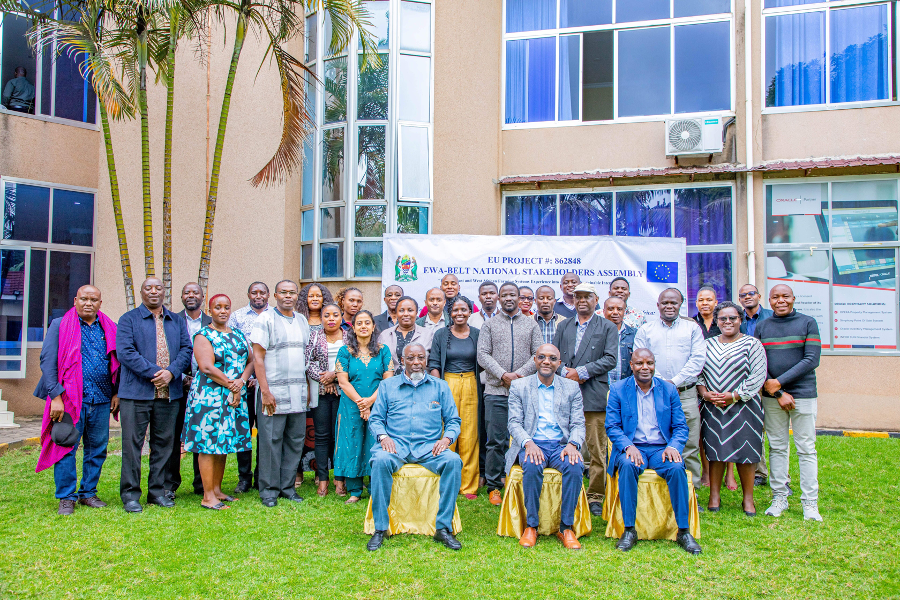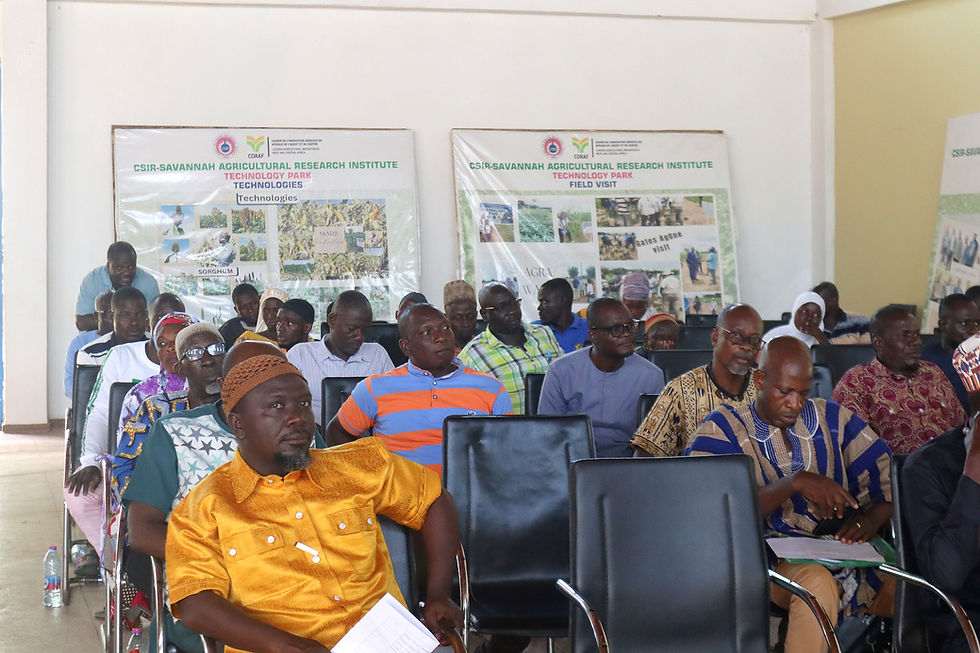EWA-BELT National Stakeholder Assembly in Tanzania: building Sustainable and Inclusive Farming Practices
- OCCAM - Observatory on Digital Communication

- Aug 22, 2025
- 3 min read
19 June 2025 – Arusha, Tanzania

On June 19th, 2025, the EWA-BELT project brought together farmers, researchers, and local institutions in Arusha, Tanzania, for the final National Stakeholder Assembly. The event, held at the Corridor Springs Hotel, marked a key moment to share the progress made so far within the EWA-BELT Project and to plan how to continue working together towards more sustainable and inclusive farming practices.
Professor Kelvin Mtei, the national coordinator of the EWA-BELT Project, opened the meeting by welcoming participants and highlighting the importance of sharing results and building strong partnerships between communities, researchers, and organizations.
During the assembly, several important results from EWA-BELT were presented. The first focus was on improving soil quality: in particular, research in the Ngarenanyuki district explored methods to reduce fluoride in the soil, while in the Monduli district, a study helped identify better ways to restore damaged soils. Further experiments highlighted how the use of goat manure, along with a specific fertilizer (N-Minjingu Nafaka Plus), supported increasing the productivity of Lablab bean.
Another important topic focused on the value of local and less-used crops: specifically, panelists illustrated the potential of Lablab bean and mungbean, which are nutritious and can grow well in local conditions. Furthermore, a new variety of mungbean with higher iron content was also introduced. Insights on cocoa farming were also presented, including new ways to study and improve it. Finally, the partner TARI illustrated the PLANTHEAD Platform for plant diagnostics, developed by OCCAM within the EWA-BELT Project.
The second part of the meeting focused on post-harvest conservation techniques of crops. Solar dryers were presented as a solution to reduce harmful toxins in food, and other methods, such as the use of sulphur bags, were also discussed as simple and effective ways to improve food safety and reduce crop loss.
Furthermore, participants had the opportunity to engage in a Q&A session to share suggestions. Among the questions raised, the origin of the Lablab plant, which was confirmed to have African roots, the suggestion on how seaweed could be used to remove fluoride from the soil, and a successful story from local farmers, like Mr. Christopher Keheri in Sakina, who manages a small but effective cocoa farm.
At the end of the meeting, the National Stakeholders Assembly agreed on some key recommendations: share successful technologies like solar dryers more widely, support closer cooperation between scientists and farmers, and promote better policies to promote local crops.
Prof. Temu from ICRAF closed the meeting by expressing his sincere appreciation to all stakeholders for their active participation and valuable contributions, encouraging continued collaboration among institutions, communities, and development partners, and emphasizing the importance of sustained joint efforts. In his remarks, he also underscored the critical need for domestic research funding, urging the Government of Tanzania to prioritize investment in local research initiatives rather than relying predominantly on external donor support.
The final EWA-BELT National Stakeholder Assembly in Tanzania marked an important step in building stronger connections between science and local farming practices. By sharing knowledge and working together, the EWA-BELT project continues to support healthier soils, safer food, and more resilient communities across Tanzania.
**
Follow us on social media to stay up to date!
EWA-BELT Project |
Website: www.ewabelt.eu Facebook: ewabelt.project Instagram: ewabelt_project X: ewabelt_project LinkedIn: showcase/ewa-belt YouTube: occam3039 Joint YouTube channel: @sfs35 |
For media inquiries, please contact:
OCCAM - Observatory on Digital Communication





Comments